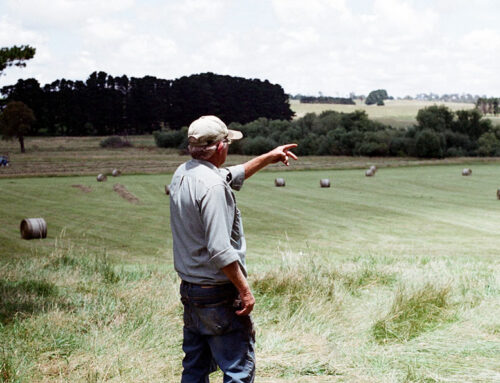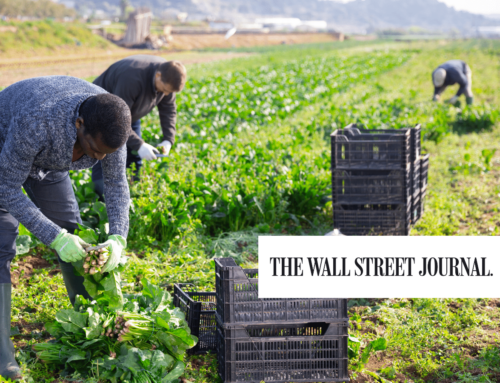The federal farm bill touches the lives of every American in some way, and has particular resonance in Iowa, one of the nation’s top states in agriculture and livestock production. The farm bill’s impacts reflect years of work by federal elected officials, together with agriculture leaders, that has made America the world’s foremost agricultural producer and exporter.
Enacted every five years, the farm bill has created a safety net that has far-reaching economic impacts throughout the country. The last farm bill, enacted in 2018, will likely cost taxpayers a record $1.4 trillion. Federal policymakers are working on a new farm bill for passage this year.
Federal taxpayer dollars should be spent wisely, including those in the farm bill. Taxpayer investments must be focused and also foster resilience in America’s agricultural sector in a fiscally responsible manner, instead of enabling ongoing dependence of certain producers on federal subsidies.
This means that the farm bill must be focused on need, so that farm subsidies go to actual farmers instead of the current practice of sending endless subsidies to millionaires, billionaires, nonfarmers, and absentee owners who often live in big cities or even foreign countries. Iowa Republican Sen. Chuck Grassley recently pointed out in a committee hearing that “the largest 10% of farmers receive nearly 70% of federal farm subsidies. Because of this, large farmers get higher payments and drive land prices up. This is one of the many reasons it’s hard for young and beginning farmers to get started.”
As Grassley highlights, it is irresponsible to lavish 70% of federal subsidies on 10% of farmers, many of whom don’t need federal taxpayer support. Meanwhile, many farmers, especially smaller and beginning farmers such as those referenced by Grassley, receive no federal subsidies at all.
In Congress, Republicans and Democrats alike share concerns over inequitable federal subsidies and farm bill incentives that flow to wealthy landowners. For example, Democratic Sens. Dick Durbin of Illinois and Jeanne Shaheen of New Hampshire have supported efforts to reduce crop insurance subsidies to high-income recipients and provide data transparency on who is receiving these subsidies.
Distorted federal subsidies — whether loans or ad hoc aid — have a history of benefiting certain agricultural producers over others. This has led to most federal farm and crop insurance subsidies benefiting the largest agricultural producers in the United States, raising primarily a handful of commodity crops like corn, soybeans, wheat, rice, peanuts, and cotton.
Crop insurance premium subsidies are also currently unlimited. Over the past decade, the Government Accountability Office has issued a number of reports recommending that these taxpayer subsidies be reduced and that federal farm subsidies be focused on farmers who are involved in working the land themselves. However, as Grassley notes, these important recommendations that could save billions of taxpayer dollars have been ignored by the U.S. Department of Agriculture.
Creating a more equitable farm safety net in the next farm bill would help farmers and rural communities as well. Building resilience into the farm bill can reduce or even negate the need for future federally subsidized disaster bailouts and other subsidies, saving taxpayers even more billions of dollars each year.
Targeted federal investments for farmers pay great dividends. For instance, investing in cost-effective agriculture conservation projects that currently receive significantly more applications than the government has money to fund can deliver public benefits. Such targeted taxpayer investments can also improve farmer profitability and reduce the need for expensive inputs such as fertilizer.
As Congress works on the farm bill, taxpayers and farmers alike deserve a farm safety net that is focused on true need, is fiscally responsible, and fosters resilience. Reining in farm subsidy programs can save billions of taxpayer dollars, strengthen rural communities, and provide opportunities for beginning farmers across the country. With bipartisan consensus on so many issues in this important legislation, the farm bill provides a chance to move forward and maintain America’s agricultural leadership and prosperity.
Joshua Sewell directs the Agriculture Reform Program at Taxpayers for Common Sense, a nonpartisan budget watchdog.











Get Social